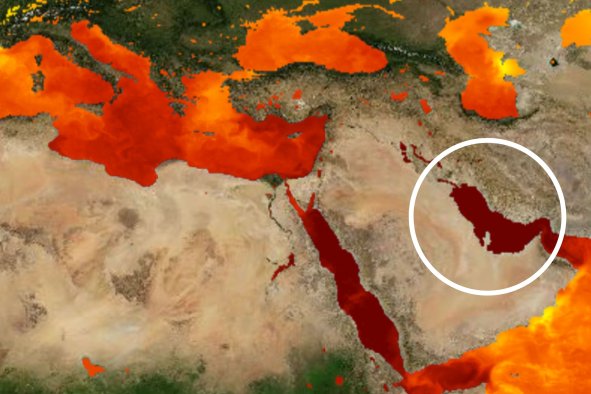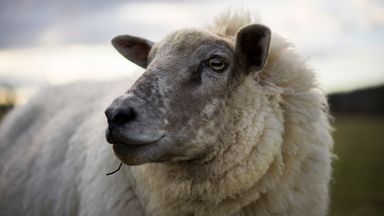Most U.S. women did not mention diet when asked how they could reduce their chances of getting breast cancer, even though it is a major risk factor, according to the Physicians Committee for Responsible Medicine (PCRM).
Only 28 percent of women who completed the 15-minute online survey in July mentioned food as a potential way to reduce their risk, but 56 percent mentioned screening methods such as mammograms.
"It's clear that millions of women have yet to hear the lifesaving message that what they eat and drink strongly influences their chances of developing breast cancer," Dr. Kristi Funk, a breast cancer surgeon and prevention expert, said in a statement.
"Science shows nearly 50 percent of cases are preventable through diet and lifestyle, at least in theory, and in my opinion, 80 to 90 percent of cases could be avoided."
Yet the survey results indicated that little progress has been made in spreading awareness about breast cancer prevention in the last 30 years. In a 1995 telephone survey of 510 women, 23 percent cited diet as a potential method of prevention—just 5 percentage points lower than last month.
"Public education programs on breast cancer have focused on mammograms, which play a vital role, but are not enough. It is essential to empower people with steps they can take to protect themselves, and a healthy diet is at the top of the list," Dr. Neal Barnard, president of the PCRM, said in a statement.
When the online survey respondents were prompted with questions about which foods might reduce breast cancer risk, 61 percent were able to recall at least one food or dietary habit that could help.
The most common response was that excess weight or a high intake of processed meats could increase breast cancer risk. Vegetables were mentioned by 23 percent of women, and 16 percent mentioned fruit.
"Soy foods such as tofu, tempeh, edamame, and soy milk are high in isoflavones which have been shown to reduce the risk of breast cancer," registered dietitian Stephanie McBurnett told Newsweek.
"Also, the phytoestrogens or plant estrogens in soy foods tend to reduce levels of human estrogen in the body, which can lead to increased breast cancer risk."
However, only 17 percent of the women interviewed by the PCRM knew that soy could reduce breast cancer risk, and 16 percent thought that soy would increase it.
Just less than one-quarter of respondents—24 percent—said that a higher consumption of dairy product might contribute to breast cancer risk. Research indicates that one cup of cow's milk per day could equate to a 50 percent increase in breast cancer risk, while two to three cups per day might mean an 80 percent increase.
Just 2 percent of survey respondents mentioned a plant-based or vegetarian diet as a possible strategy for preventing breast cancer.
The PCRM also found that 72 percent of respondents said they had never received education or information about the link between nutrition, diet and breast cancer risk from a health care professional.
McBurnett told Newsweek that high-fiber foods, soy foods, flaxseed and cruciferous vegetables all contained nutrients that could reduce breast cancer risk.
"Fiber is found only in plant foods and it has a variety of health benefits, including helping to remove waste, such as excess estrogen and carcinogens, from our system. Legumes, including chickpeas, are very high in fiber," she said. "Ground flaxseed contains special fibers called lignans, which are shown to block estrogen receptors and decrease the growth of breast cancer.
"Cruciferous vegetables, such as broccoli, cauliflower, Brussels sprouts, cabbage
and kale, have high amounts of sulforaphane, a compound that is found to have
anticancer and estrogen-blocking properties."
McBurnett also explained that some animal foods are associated with higher breast cancer risk, such as sausage, bacon, turkey bacon, ham, hot dogs, deli slices and eggs.
"Fatty and meaty diets tend to be low in fiber and antioxidants and high in saturated fat and carcinogens," she said.
Data was collected from a variety of demographics and then weighted to represent the adult female U.S. population in terms of age, race, region and education level. Women were more likely to be better informed if they were older, more educated or wealthier.
September is breast cancer awareness month in the U.S. To reduce your risk, the PCRM recommends eating a whole-food plant-based diet, exercising regularly, limiting alcohol and maintaining a healthy weight. McBurnett told Newsweek her top advice for lowering breast cancer risk.
"Eat plants!" she said. "The more you fill your plate with nutritious fiber-filled plants rich in antioxidants and polyphenols, the lower your risk of breast cancer.
"Eat soy. Women who eat the most soy have the lowest risk of breast cancer.
"Eat less meat. Every time you replace meat with plant proteins, you are lowering your risk of obesity, type 2 diabetes, and certain cancers.
"Move as much as possible. Exercise lowers blood estrogen levels and women who move regularly have lower rates of breast cancer.
"Limit or avoid alcohol. Alcohol is a known carcinogen and is highly linked to breast cancer. Try a new mocktail or fun fruit-infused frizzy drink instead!"
Do you have a tip on a food story that Newsweek should be covering? Is there a nutrition concern that's worrying you? Let us know via science@newsweek.com. We can ask experts for advice, and your story could be featured in Newsweek.
Reference
Physicians Committee for Responsible Medicine & Morning Consult. (2024, August). Beliefs About Dietary Factors in Breast Cancer Prevention Among American Women. https://pcrm.widen.net/s/fblnjvzsdh/pcrm-breast-cancer-awareness-8.15.24
Disclaimer: The copyright of this article belongs to the original author. Reposting this article is solely for the purpose of information dissemination and does not constitute any investment advice. If there is any infringement, please contact us immediately. We will make corrections or deletions as necessary. Thank you.



